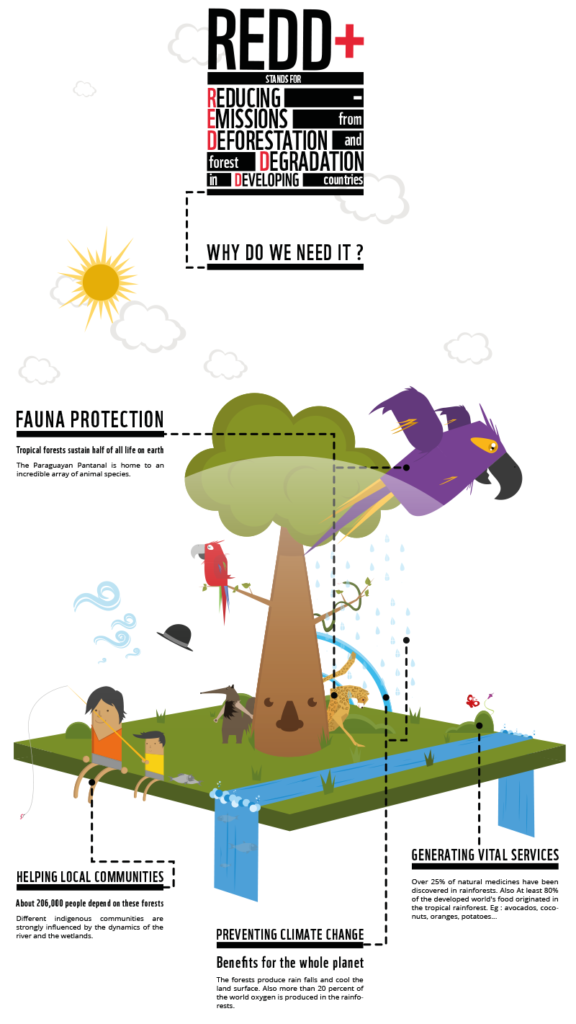REDD+ and the value of forest ecosystems
REDD+ is a mechanism created by countries to reduce the disforestation and degradation of forests. This mechanism was created because of the importance of the forests in maintaining carbon. If the forest is destroyed, the carbon contained in vegetation will go into the atmosphere and this carbon will contribute to the rise of the Earth’s temperature (climate change).
The value of forest
Forests are the source of livelihood of about 1.3 billion people, and they depend directly or indirectly on them for medicine, food, wood, energy (firewood and charcoal). They are also home to millions of communities as well as indigenous villages (FAO, FRA 2010).
Global deforestation is occurring very fast, especially in tropical areas. On average, since 2000, the annual loss is around 13 million hectares of forests. This produces about 15% of global CO2 emissions. The loss of forests also implies the loss of biodiversity, (plants and animals that live in the forest), soil degradation, loss of water quality, and the destruction of indigenous communities that depend on forests.
Deforestation negatively affects carbon stocks by reducing them and at the same time contributing to increased levels of CO2 in the atmosphere, leading to the acceleration of the pace of global climate change.




